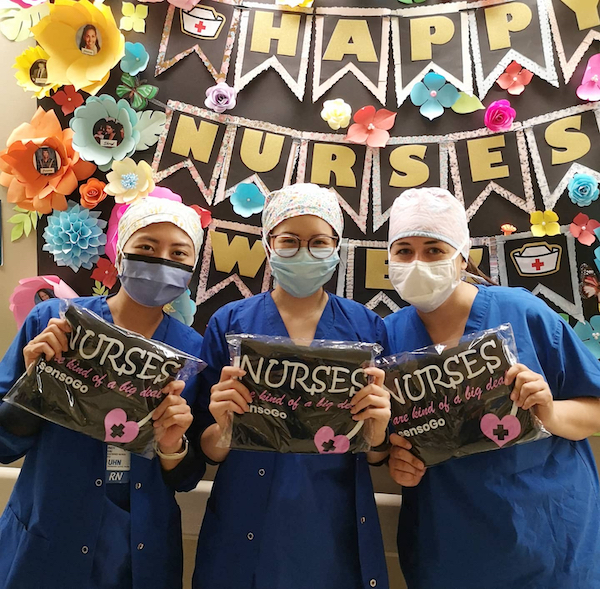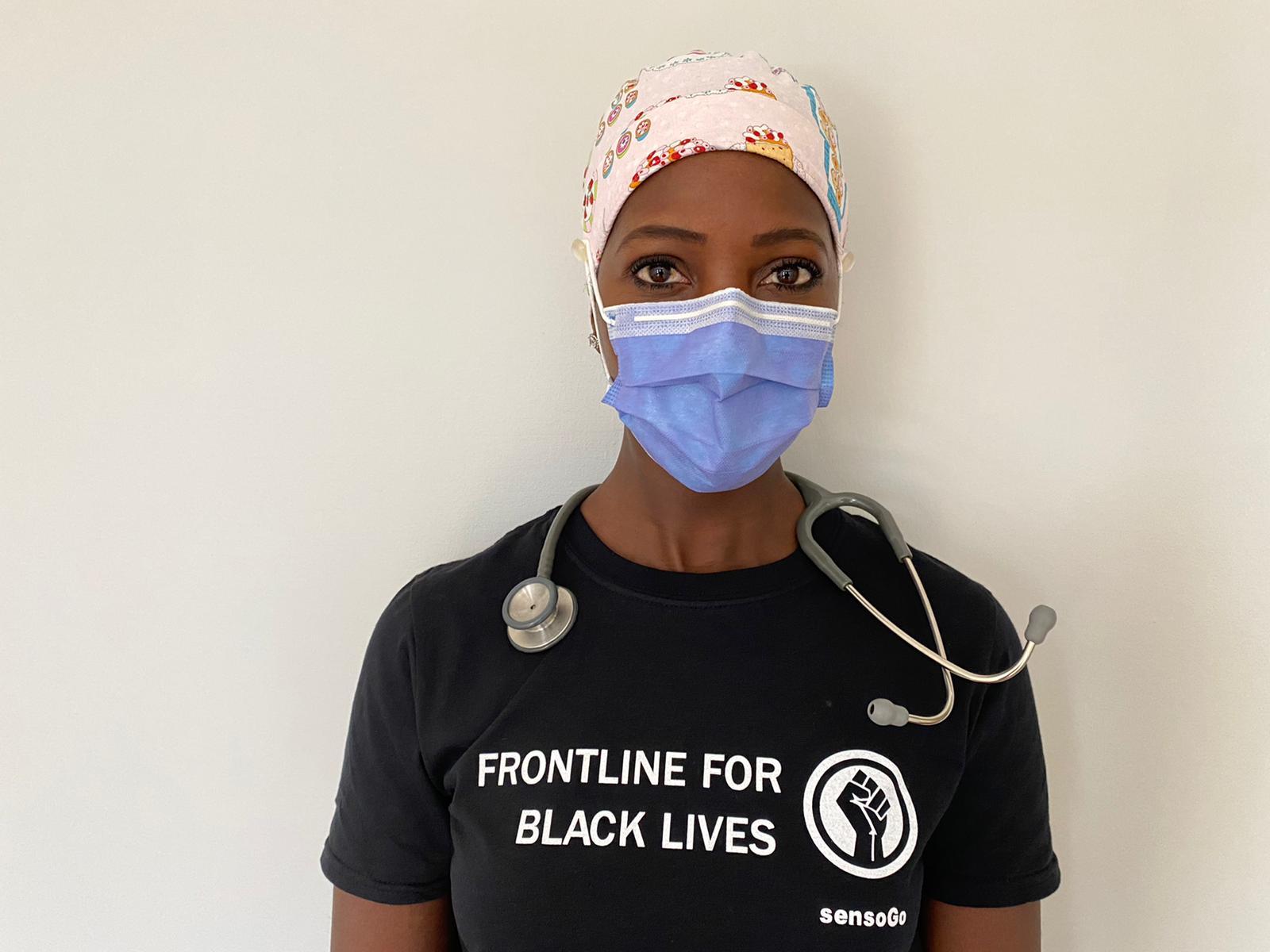Changing the Narrative
Nursing Alumna Helps Launch Program to Support Front Line Staff, Local Businesses and the Black Lives Matter Movement

Trent University School of Nursing alumna Tsering Bharwani '11 – along with her husband, Saroop Bharwani – has started a program to help make life easier for front line health workers and Liberty Village (Toronto) businesses. SensoGo has raised over $60,000 to supply locally sourced meals and gift packages for hospital staff, positively impacting the lives of over 1,500 workers. The money raised has been funnelled back into their community, with food and other products being purchased from local companies that have taken an economic hit from the pandemic.
What's more, they've used this successful initiative as a platform to raise awareness for Black Lives Matter and the impact of racism on healthcare.
Ms. Bharwani, who returned to her nursing position from maternity leave as the COVID crisis was first unfolding in Toronto, made the difficult decision to isolate herself from her family, spending months alone at home while her husband and daughter stayed with extended family. That experience was part of what influenced the couple to start SensoGo.
“I was one of thousands of healthcare workers who had made the sacrifice,” she explains. “I wanted to make sure they were all honoured and that the world knew about them.”
One SensoGo program, Front Line Moms, saw $25,000 worth of products delivered to 500 workers in carefully designed care packages. Ms. Bharwani was hands-on in choosing products and physically putting packages together.
“We went with things that were really useful,” she notes. “For example, there were many front line workers experienced skin problems from wearing masks for extended periods, so there were skin care products included that helped with that.”
SensoGo started small and grew organically. Inspired by a friend who had sent pizza to a floor of workers at a hospital, Mr. Bharwani did the same for Ms. Bharwani and her colleagues. Soon others were joining in.
As CEO of Senso, a technology start-up, Mr. Bharwani reached out to partners in the tech sector. The couple soon had a website and started seeking sponsors in earnest.
They chose to work with business in their Liberty Village neighbourhood that were hit hard by the pandemic. Money raised was used to purchase either meals or contents of care packages for front line workers.
Front Line for Black Lives
 When the Black Lives Matter protests began, the pair realized they could also use their platform to show their support. They enlisted Mr. Bharwani’s cousin, Sheena Melwani, to perform a song and then made a video with contributing front line workers – including several Trent School of Nursing alumni.
When the Black Lives Matter protests began, the pair realized they could also use their platform to show their support. They enlisted Mr. Bharwani’s cousin, Sheena Melwani, to perform a song and then made a video with contributing front line workers – including several Trent School of Nursing alumni.
“When I approached my front line friends, they were excited and jumped on board,” Ms. Bharwani recalls. “They are very passionate about this.”
Healthcare and Black Lives Matter definitely intersect, she says.
“Look at the stats. There are some alarming stats about black maternal health, how black mothers are three to four times more likely to die during pregnancy, or before or after delivery. Black people have higher risk of chronic diseases. Studying nursing, I learned about the social determinants of health, where you were born, where you live, the type of education you received, your employment opportunities, and how all of this impacts your health.”
She also recognizes clinician bias as an issue.
“The bias that we healthcare workers carry – consciously or unconsciously – can impact your interaction with patients, your delivery of care, the amount of time you spend with someone, even being dismissive of symptoms. All these things contribute to the poor health outcomes that black people are going through right now.”
Ms. Bharwani recognizes the change that can be made my her and her colleagues.
“There are things you can do as a front line worker, rather than passing it off as a systemic issue and leaving it at that. There are things that are in your control. You have the power to change that treatment, change the experience of a patient. As front liners in this video, we’re almost taking an oath to do that. We’re going to recognize this bias and dismantle it. When we see this kind of thing happening, we need to speak up. We have the power to change the narrative.”
Much of her passion for making positive change came from her time being part of a community at Trent.
“I was pleasantly surprised by the diversity of Trent, how multicultural it was, and how that was celebrated. There was always a sense of belonging.”